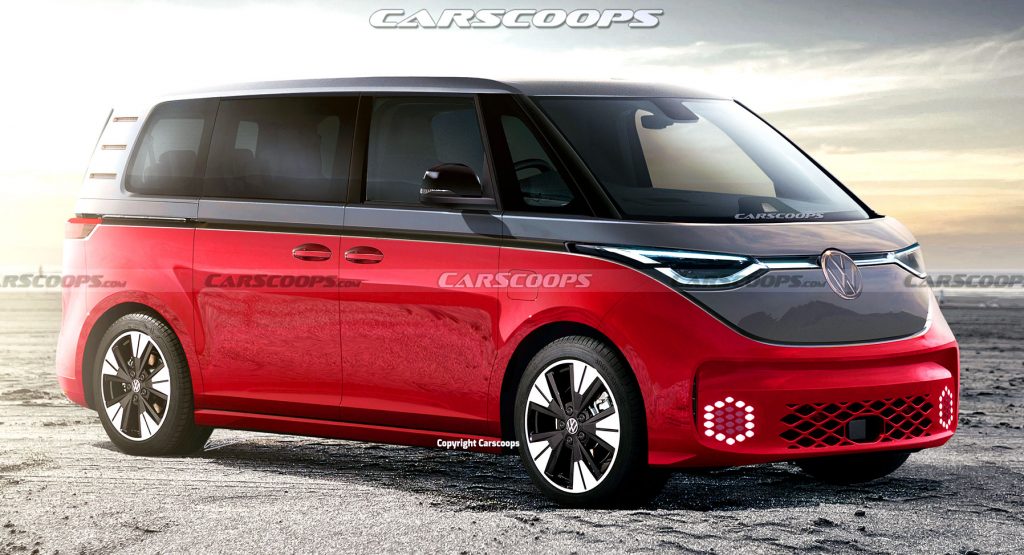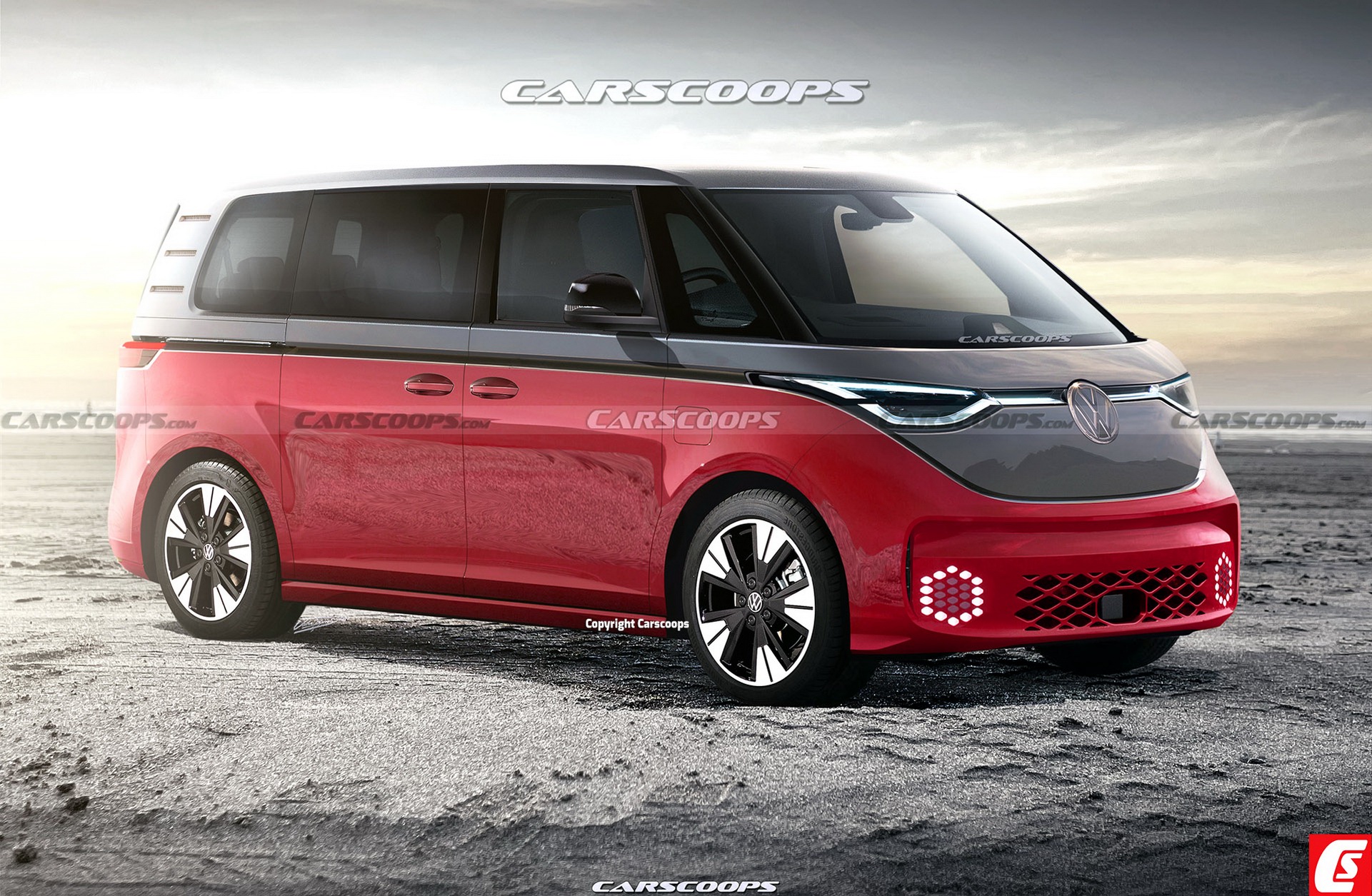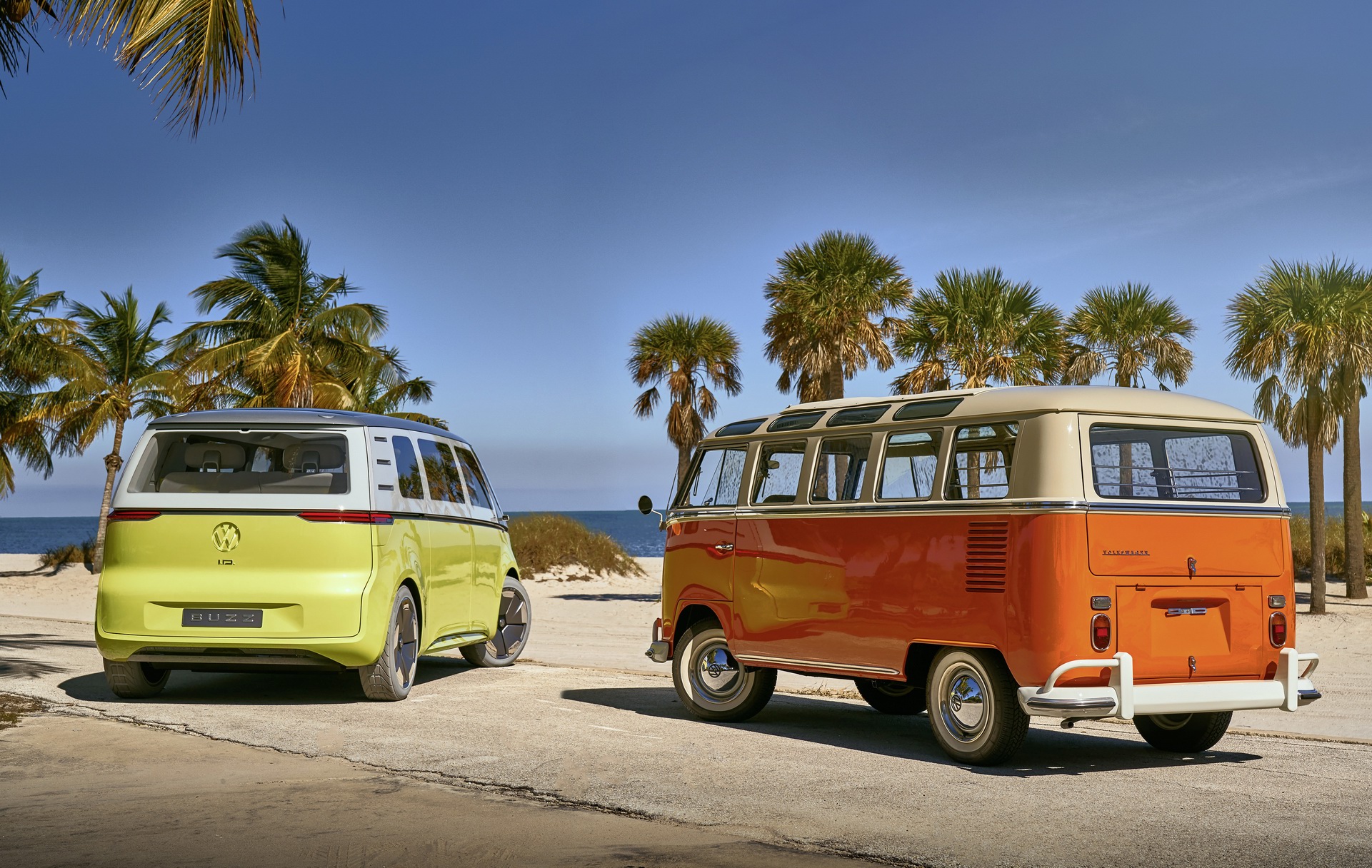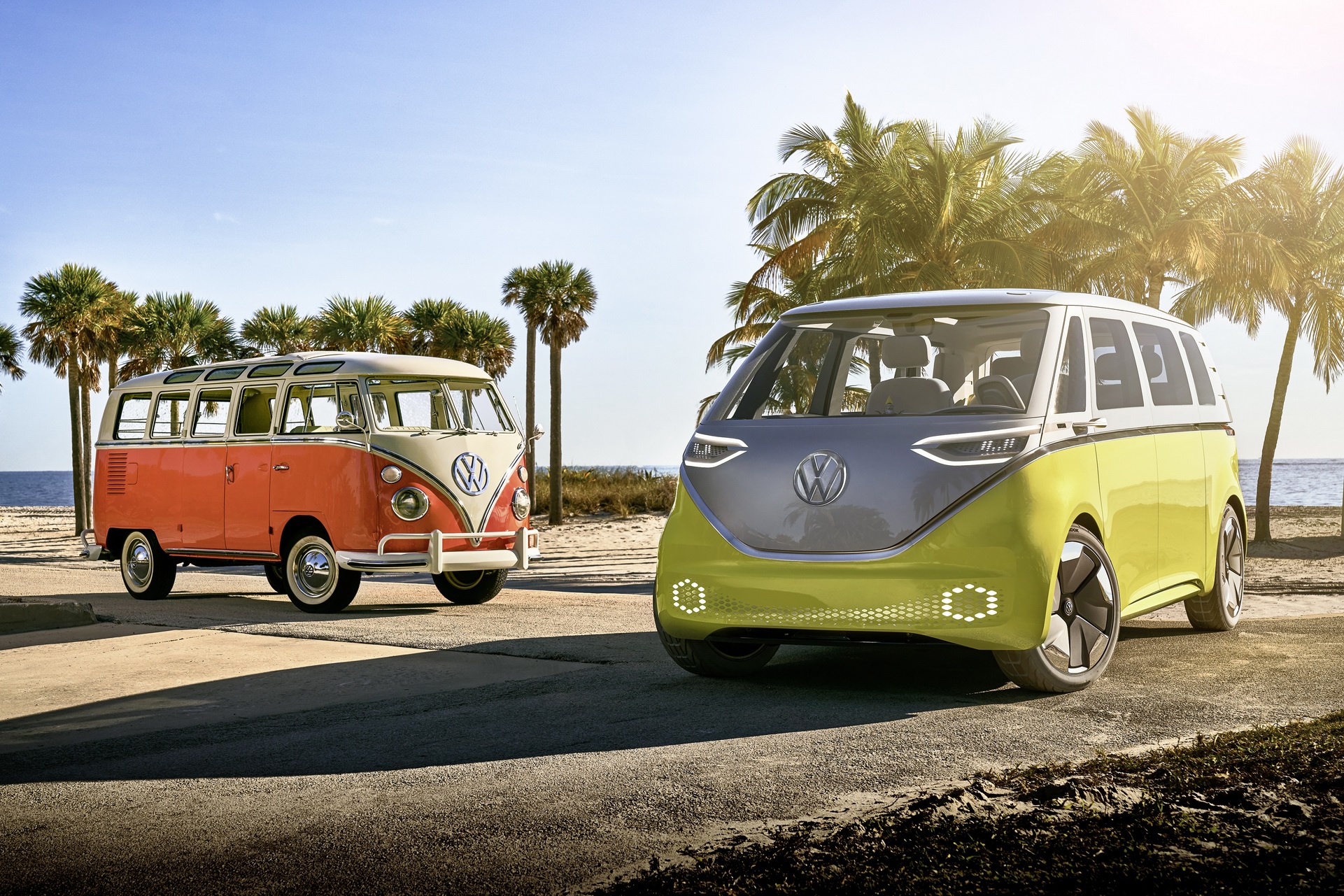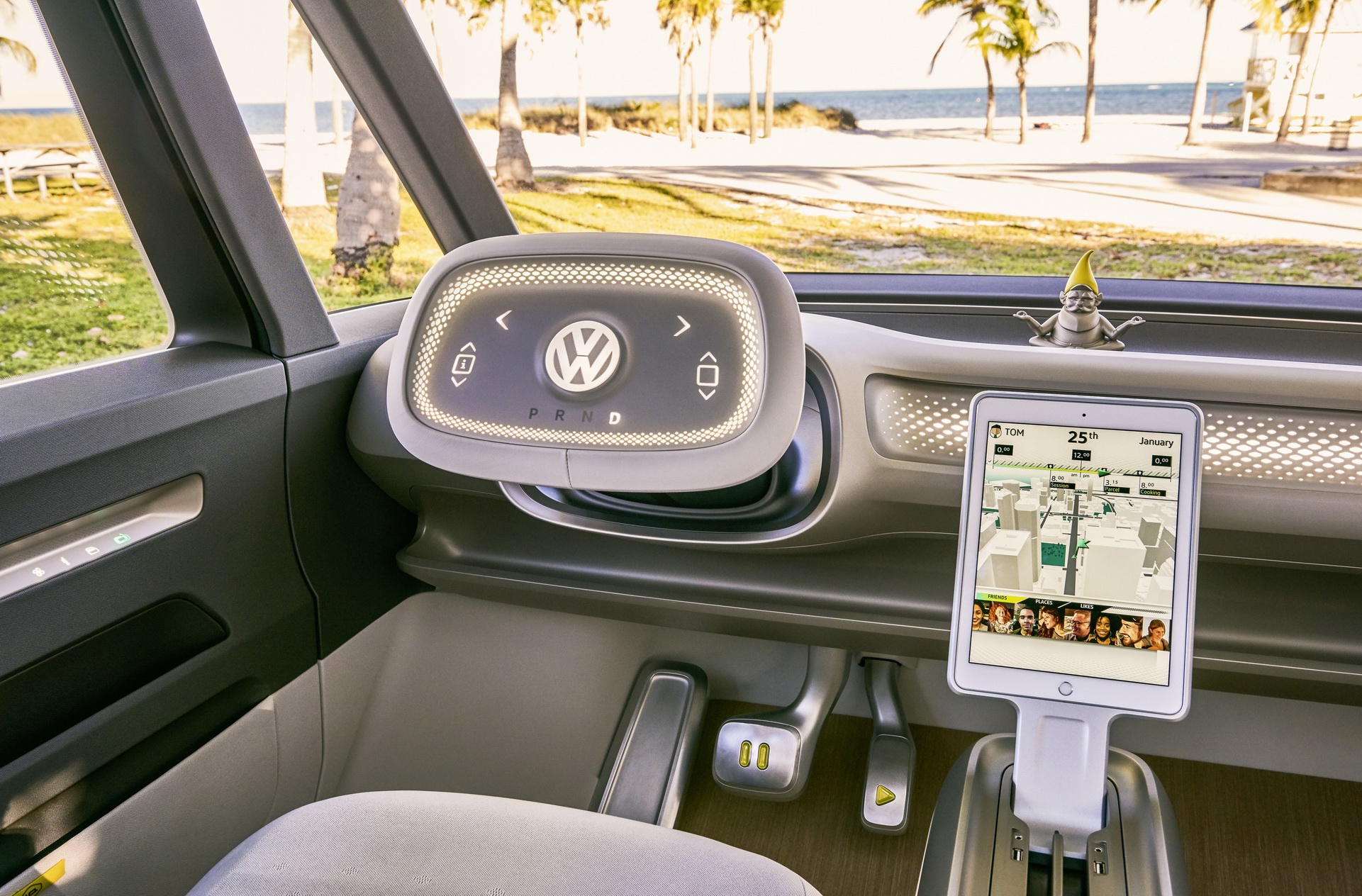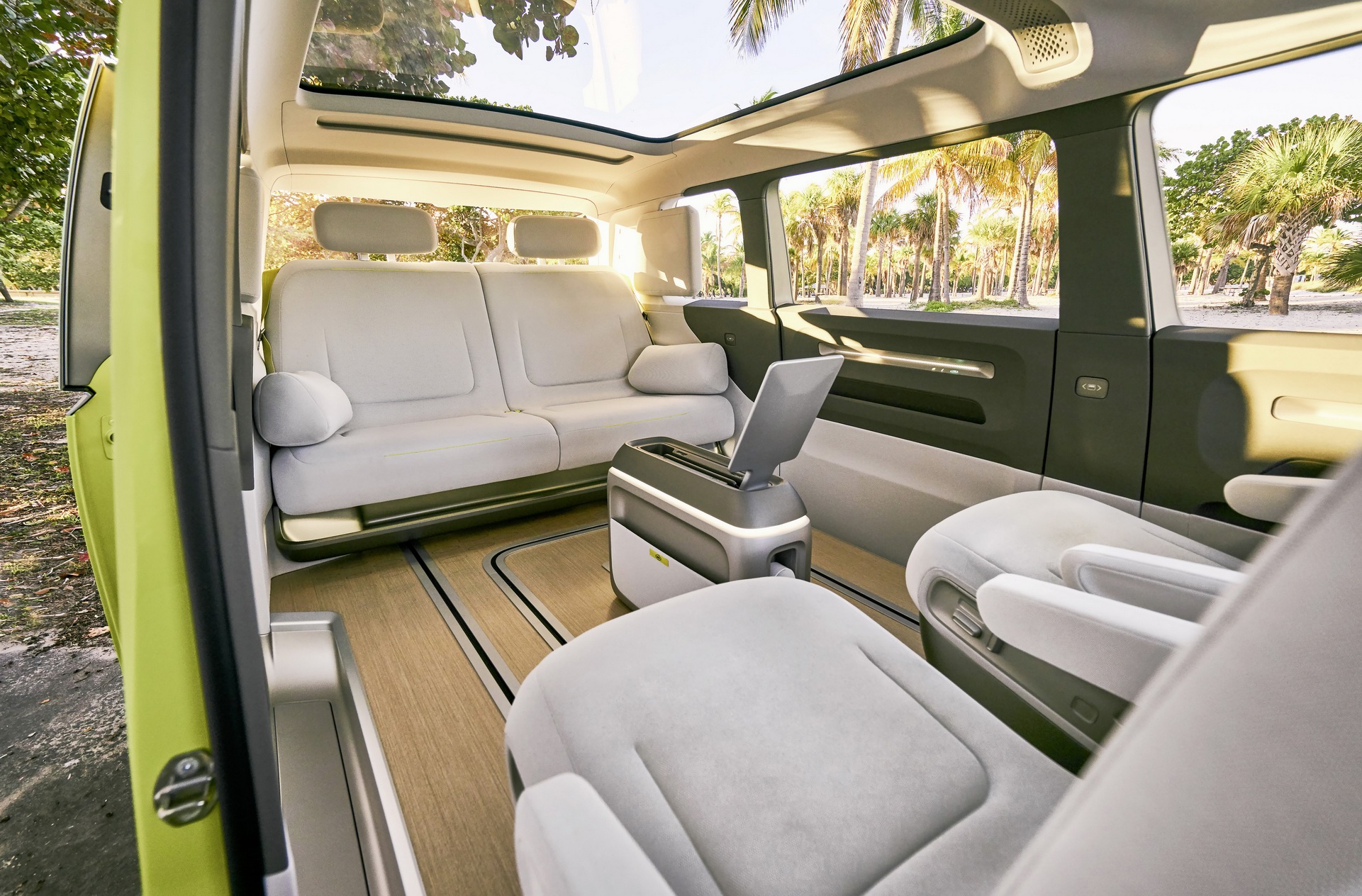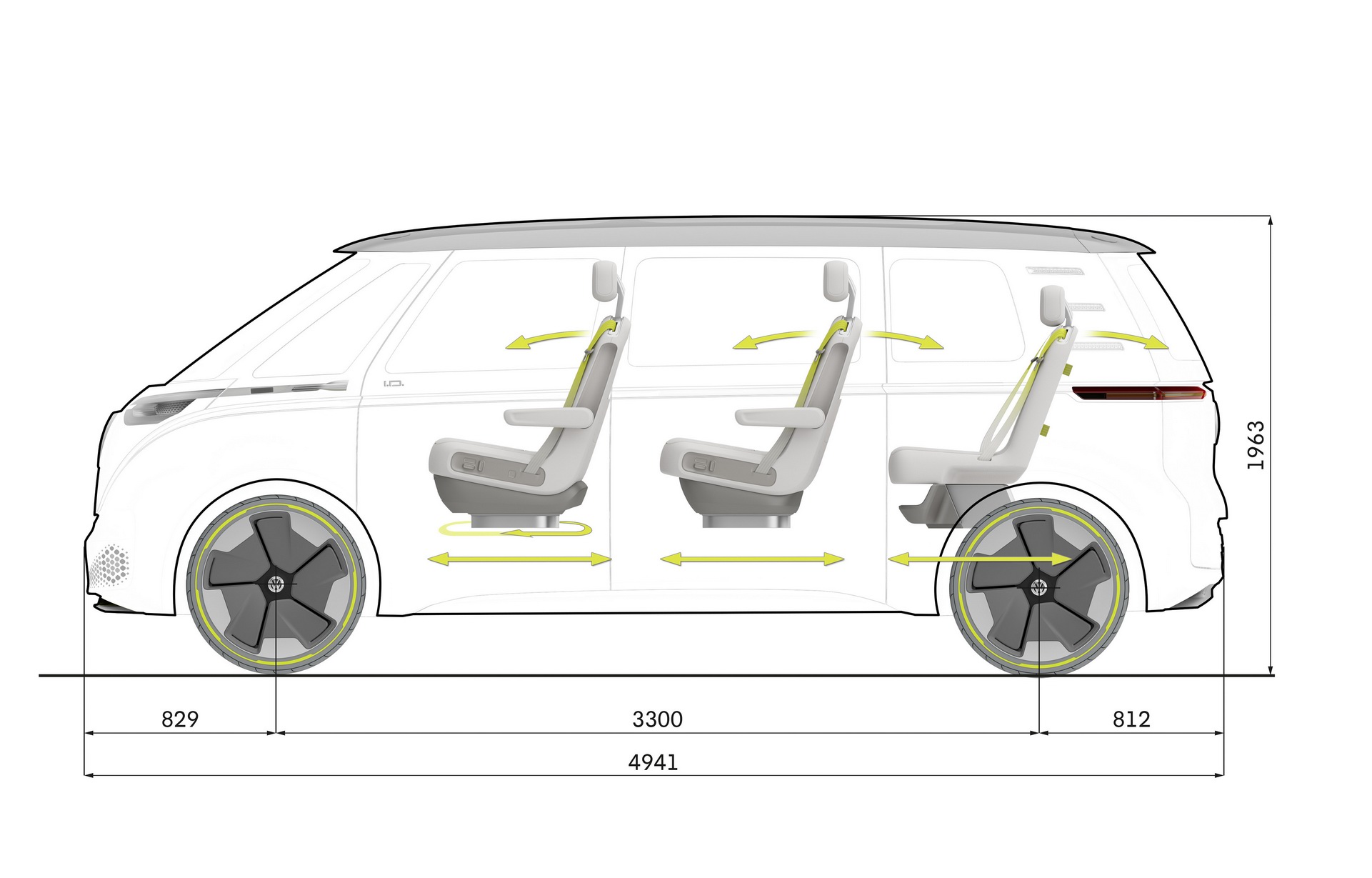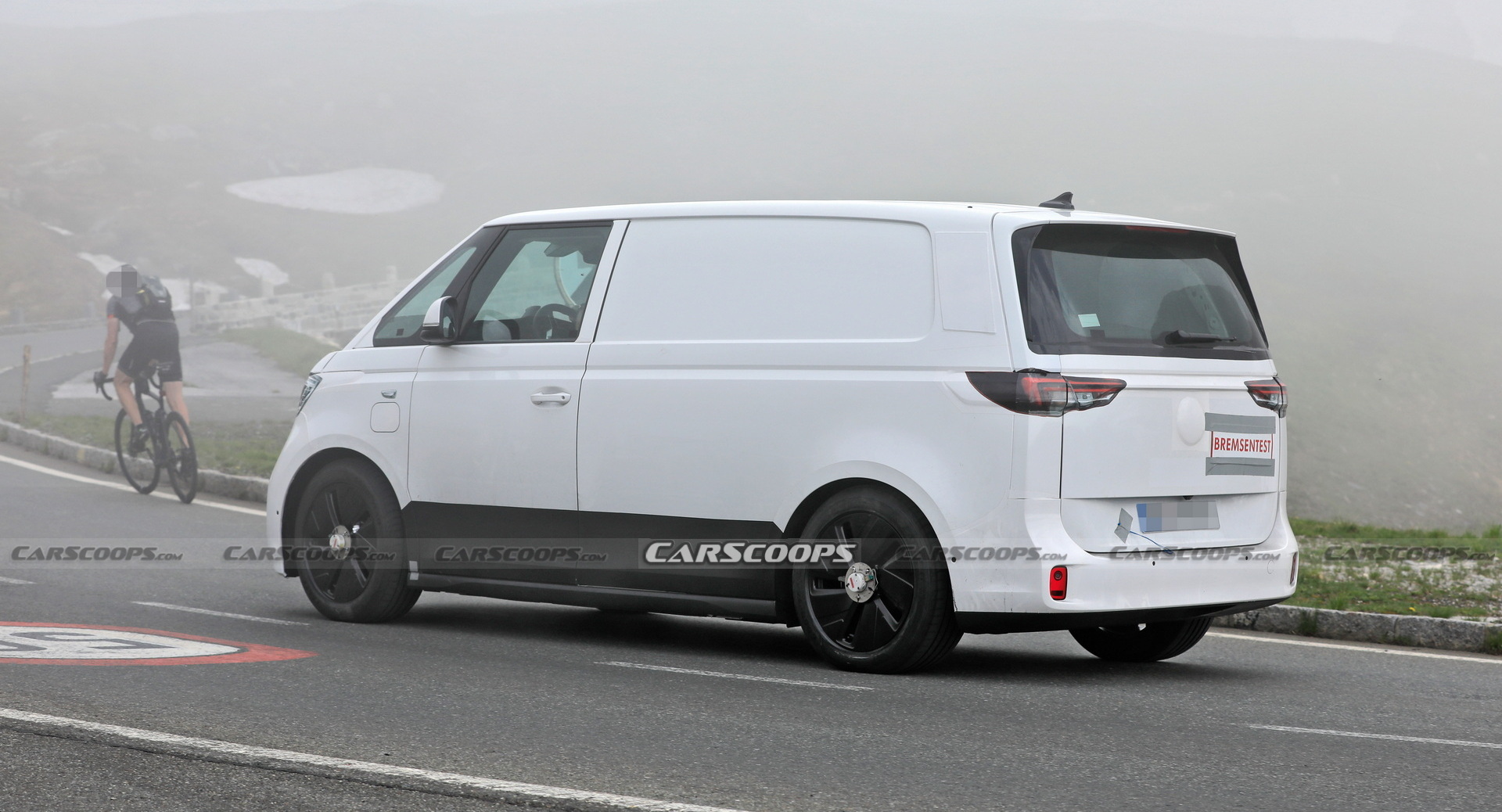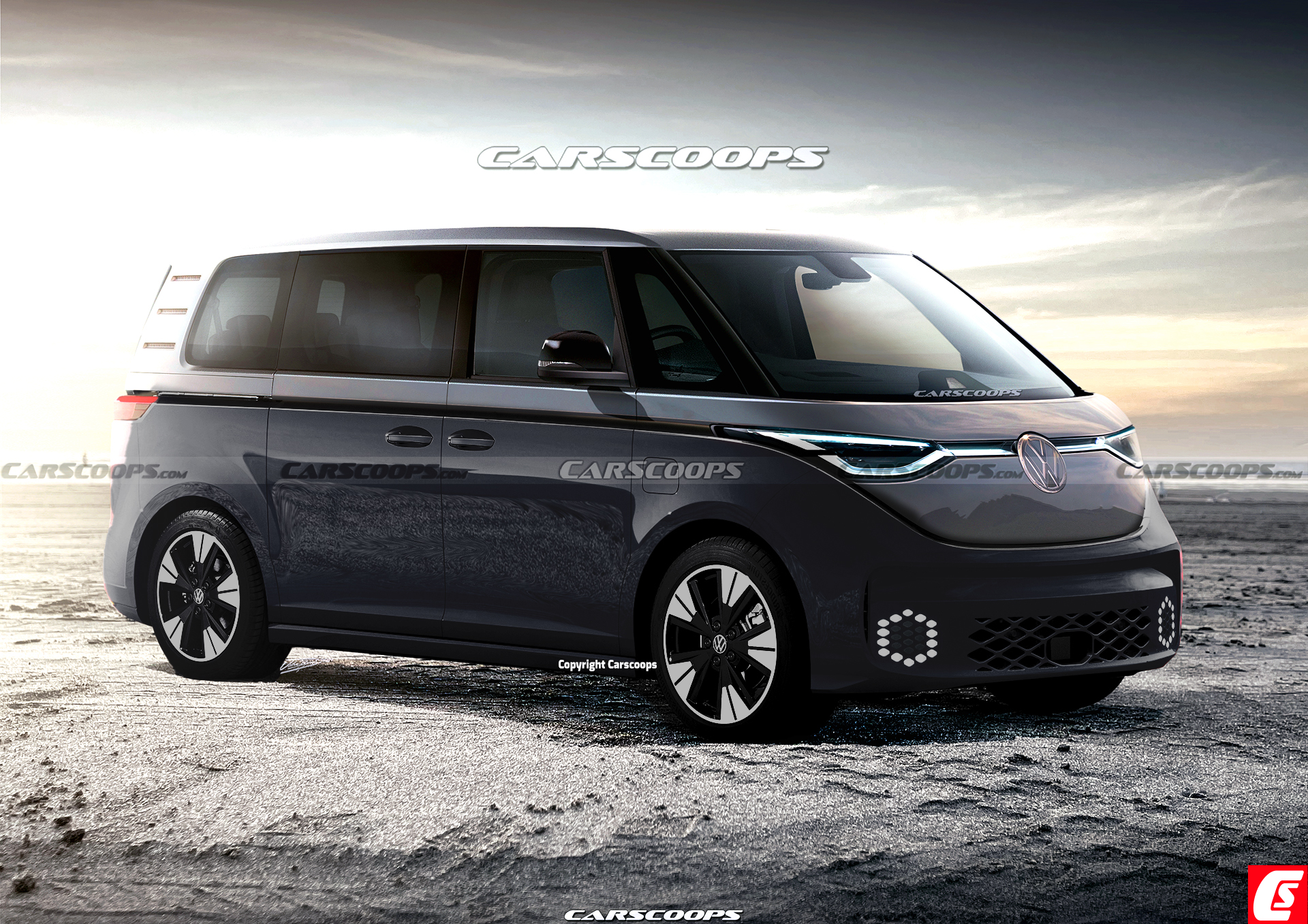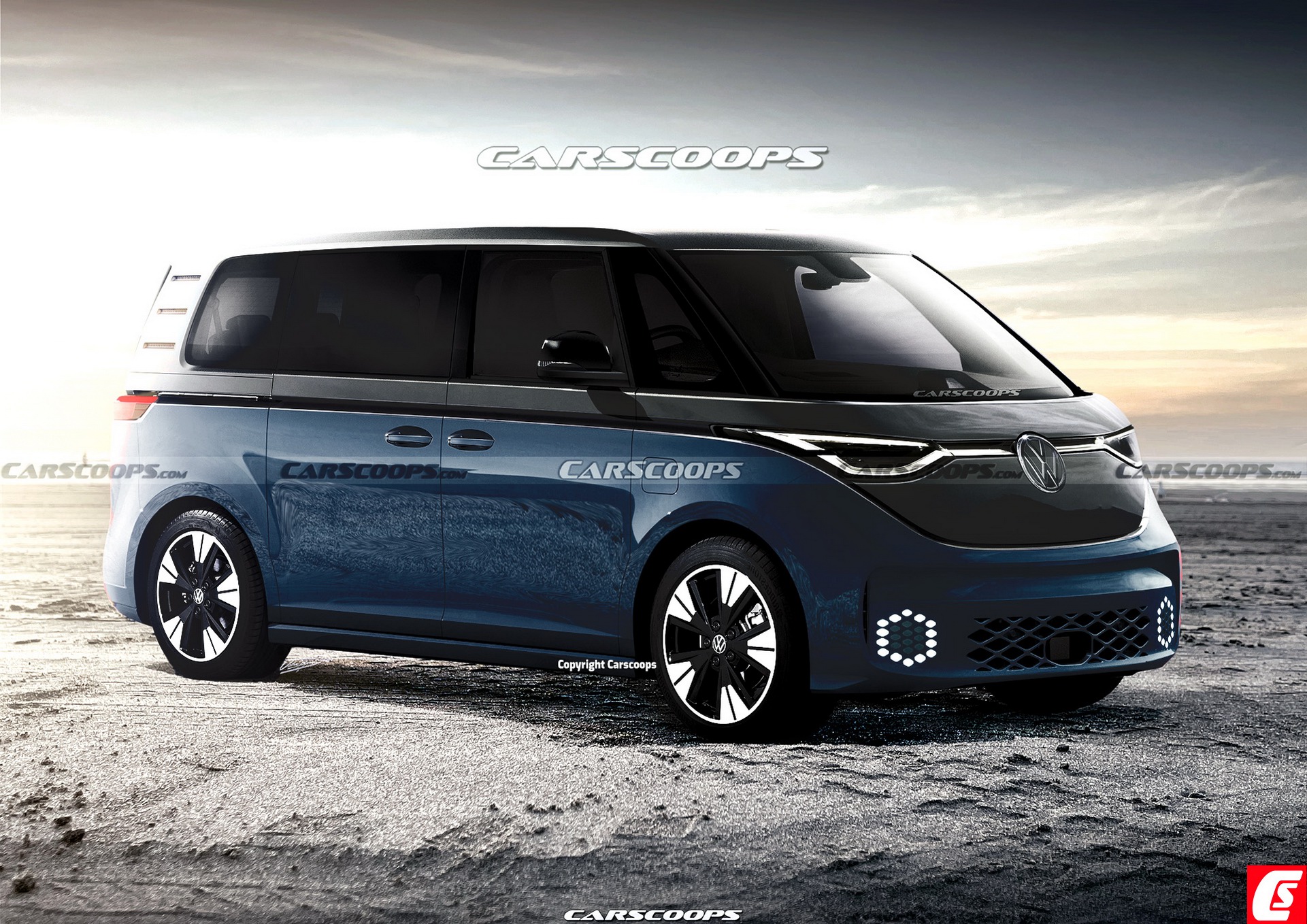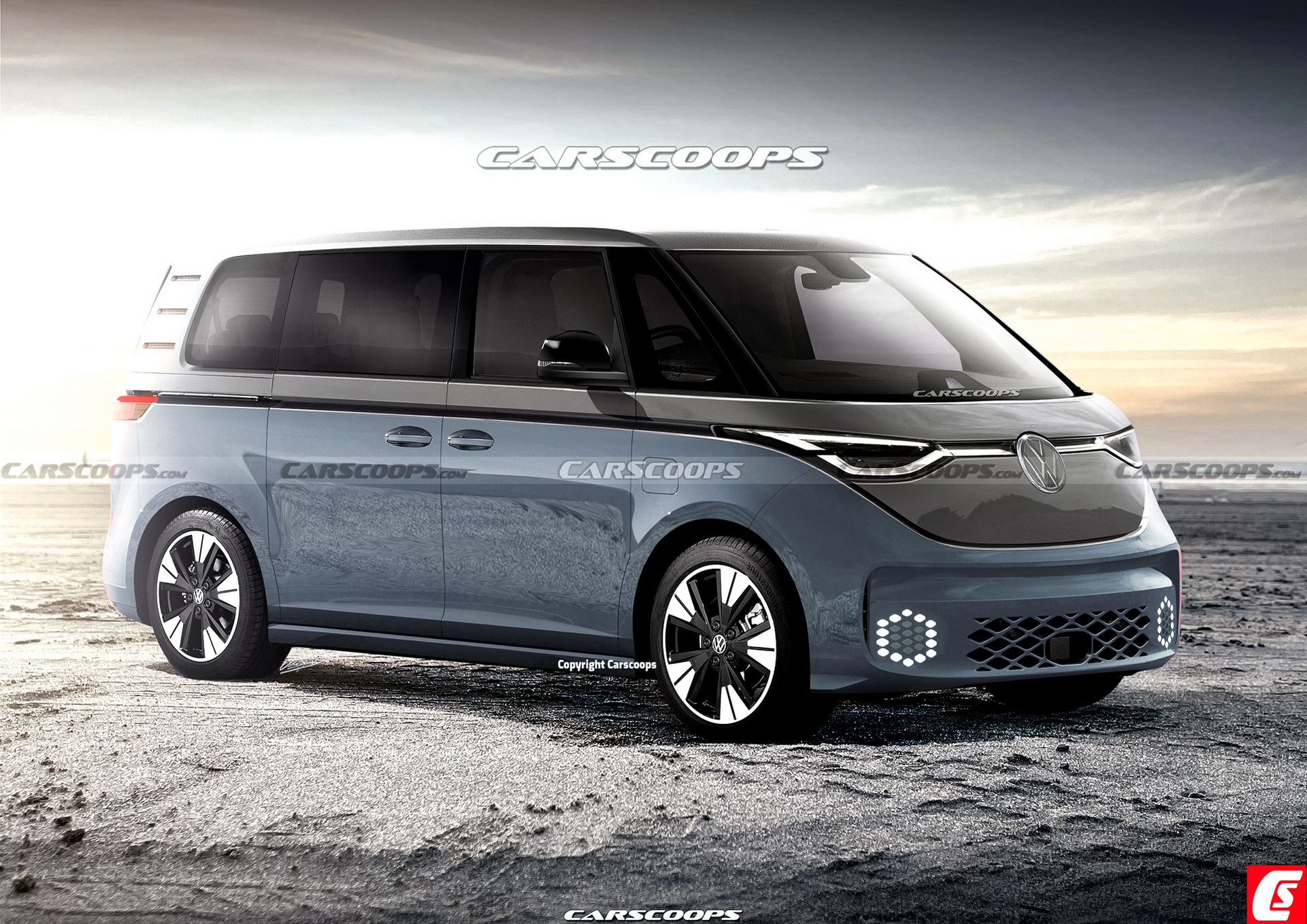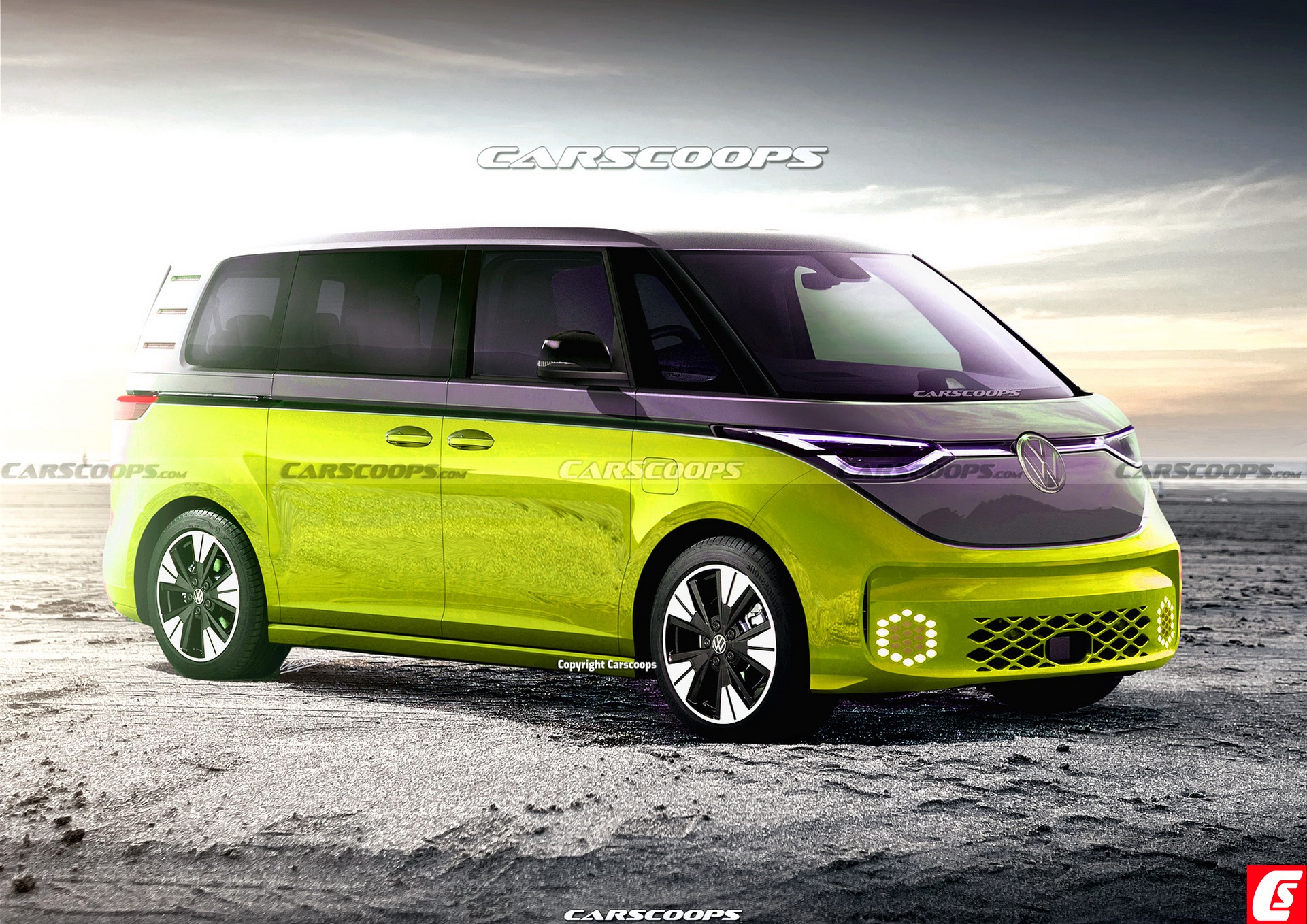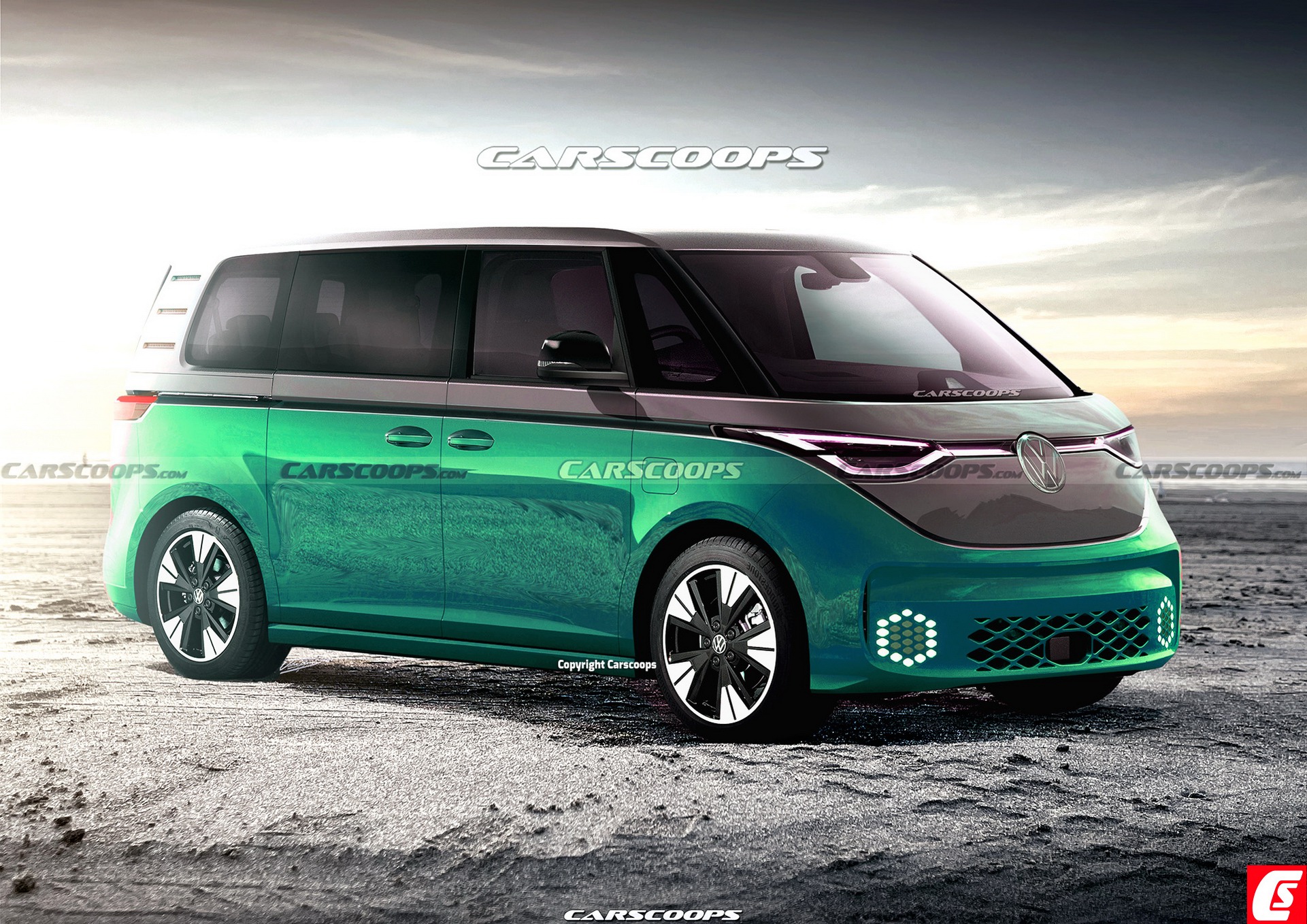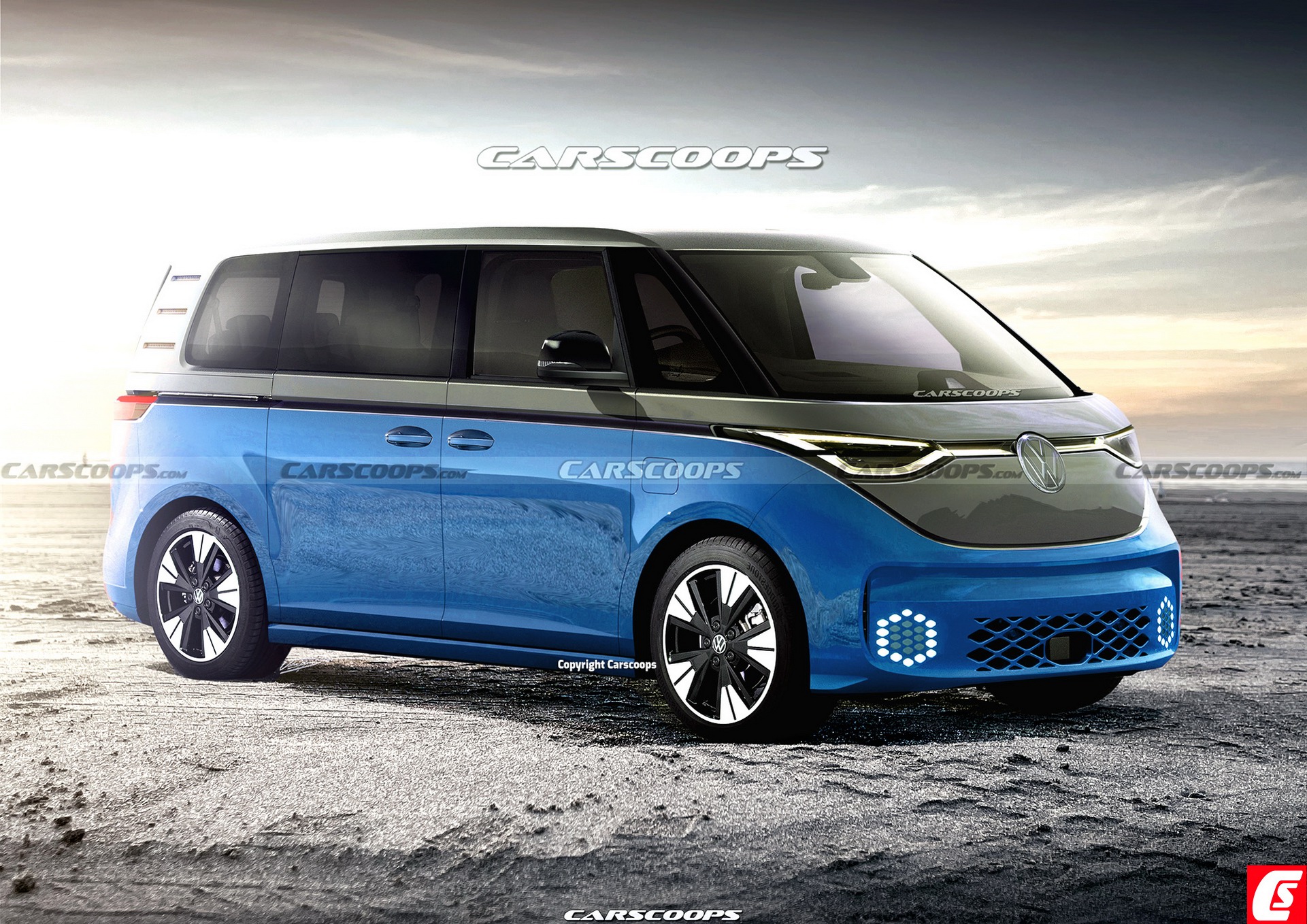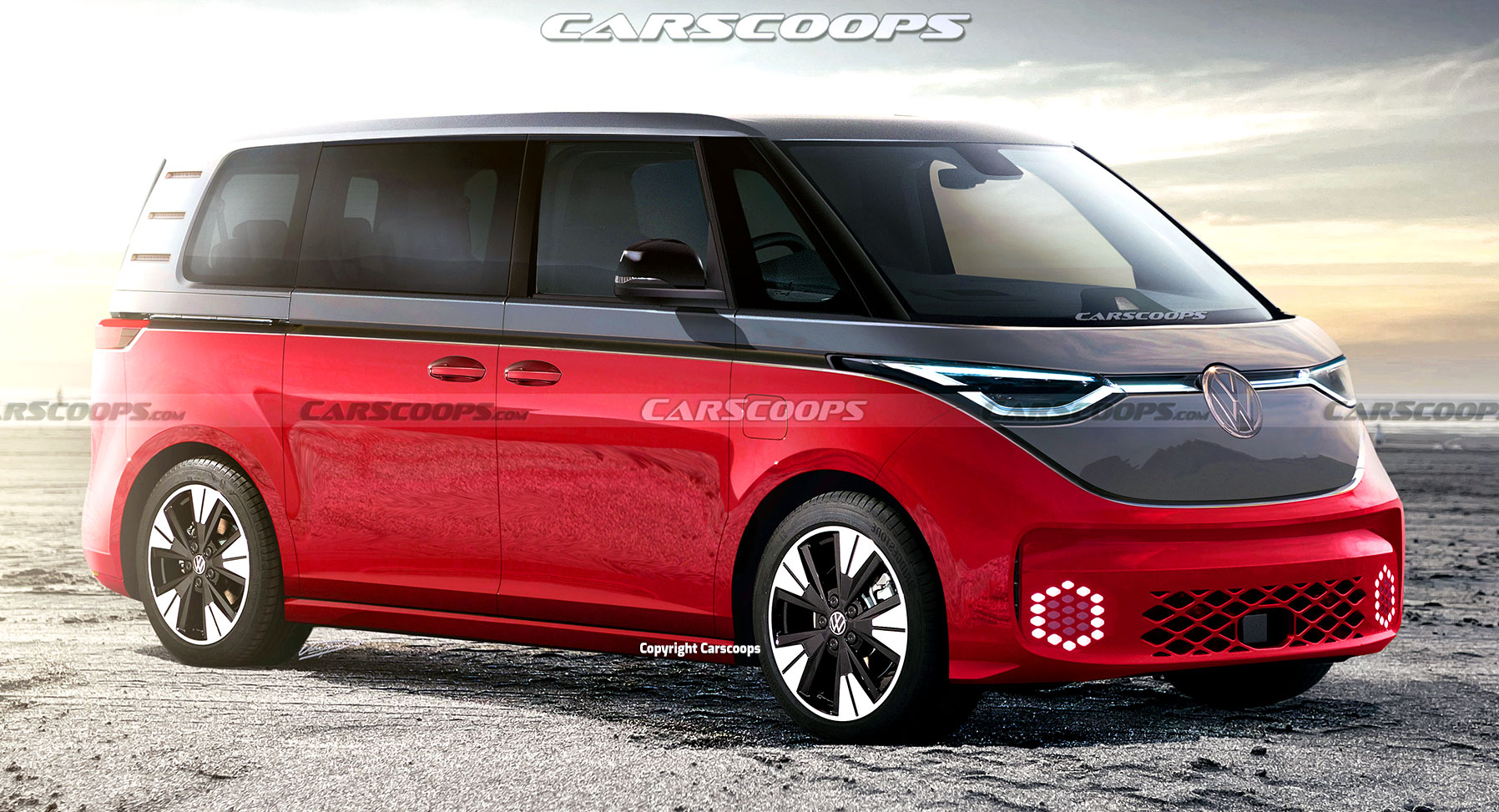These are independent illustrations based on prototype VW ID Buzz models we’ve spied as well as information we’ve obtained, that were penned by CarScoops’ artist Josh Byrnes and are not related to nor endorsed by Volkswagen.
Like a tide’s ebb and flow, retro car design is making a comeback. Whilst your mind may immediately default to the mid-2000’s trend that gifted us such “beauties” as the Chrysler PT Cruiser, VW New Beetle and Chevrolet HHR, the odds are this time it’ll be design done right. Want proof? Just look at the smashing new Ford Bronco and Renault 5 concept as prime examples.
See Also: Everything We Know About The Audi Q6 E-Tron Electric Crossover
Another carmaker about to re-join the retrolicious bandwagon is Volkswagen. You may recall the ID. Buzz concept from 2017, an exciting homage to the original Kombi van underpinned with EV credentials.
The German automaker is putting it into production next year, and we’ve got the scoop on what it’ll look like. Hungry for more info? Well, pour yourself a kombucha and read on.
Exterior Eye-Candy
While VW engineers have used clever camouflage to disguise prototypes currently in testing, it hasn’t stopped this writer from deciphering the final look. For example, the front end is easy to decode with curvaceous styling that nods to the original Kombi, as is the character line separating the lower and upper two-tone paint scheme.
The daylight opening area (DLO) has lost a little of its conceptual uniqueness, instead adopting a more traditional look shared with the new T7 Multivan. Sadly, elements like the flush door handles and mirrors haven’t made the cut, although it does retain the concept’s LED headlamps, rear pillar details and smooth sheet metal surfacing.
Room To Relax
Open space is Volkswagen’s theme for the cabin (which, depending on configuration, seats 6-8 people), with clever spatial utilization aided by its EV underpinnings and flat-floor design. The Buzz will have a free-standing digital instrument cluster and tablet-style infotainment screen with wireless Android Auto, Apple CarPlay and phone charging capabilities like other ID models.
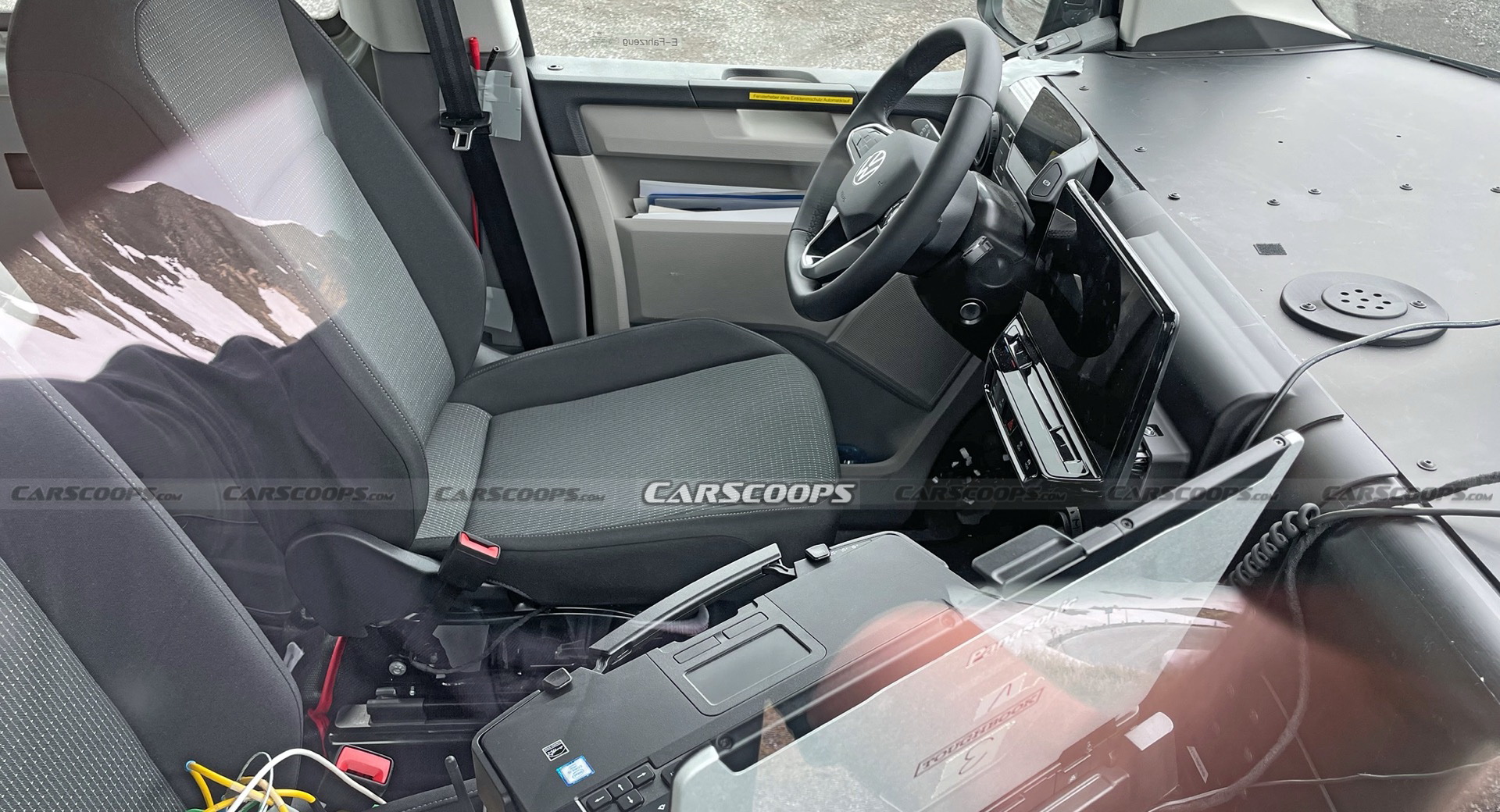
Above is the interior of a development prototype of the VW ID.Buzz, while below the cabin of the conceptual model from 2017
A plethora of driver convenience and assists will be available; these include over-the-air updates, augmented reality (AR) heads-up display, speed sign recognition and autonomous emergency braking with pedestrian detection. Level 2 semi-autonomous driving on highways will be available at launch, with Level 4-capable autonomous driving coming on-stream in 2025 via a partnership with U.S.-based tech firm Argo AI.
Power To The People
Rear- and all-wheel drive versions will be available; the former has a 150 kW (201 hp) single-motor setup, while the all-paw variant pumps out a healthy 275 kW (365 hp) via its dual motors. The newest member of the ID family will also use Volkswagen’s flexible MEB-XL platform, which can accommodate lithium-ion battery packs ranging from 48 kWh to 111 kWh in size.
Also See: What Would A Future Apple iCar Look Like?
The biggest battery pack can cover over 550 km (342 miles) of range and be charged to 80 percent within 30 minutes using a 150 kW fast charger. A 230V socket provides additional freedom for worksites needing power for tools and other equipment, and bi-directional charging is expected to be available too.
Rivals & Reveal
Arguably, the ID. Buzz will be a standout amongst the current crop of minivans; it’ll also have an eco-advantage of being a people mover that’s fully electric. Rivals include the Toyota Sienna Hybrid, Kia Carnival, Chrysler Pacifica Hybrid, Mercedes-Benz’s upcoming EQT and Renault Kangoo E-Tech Electric.
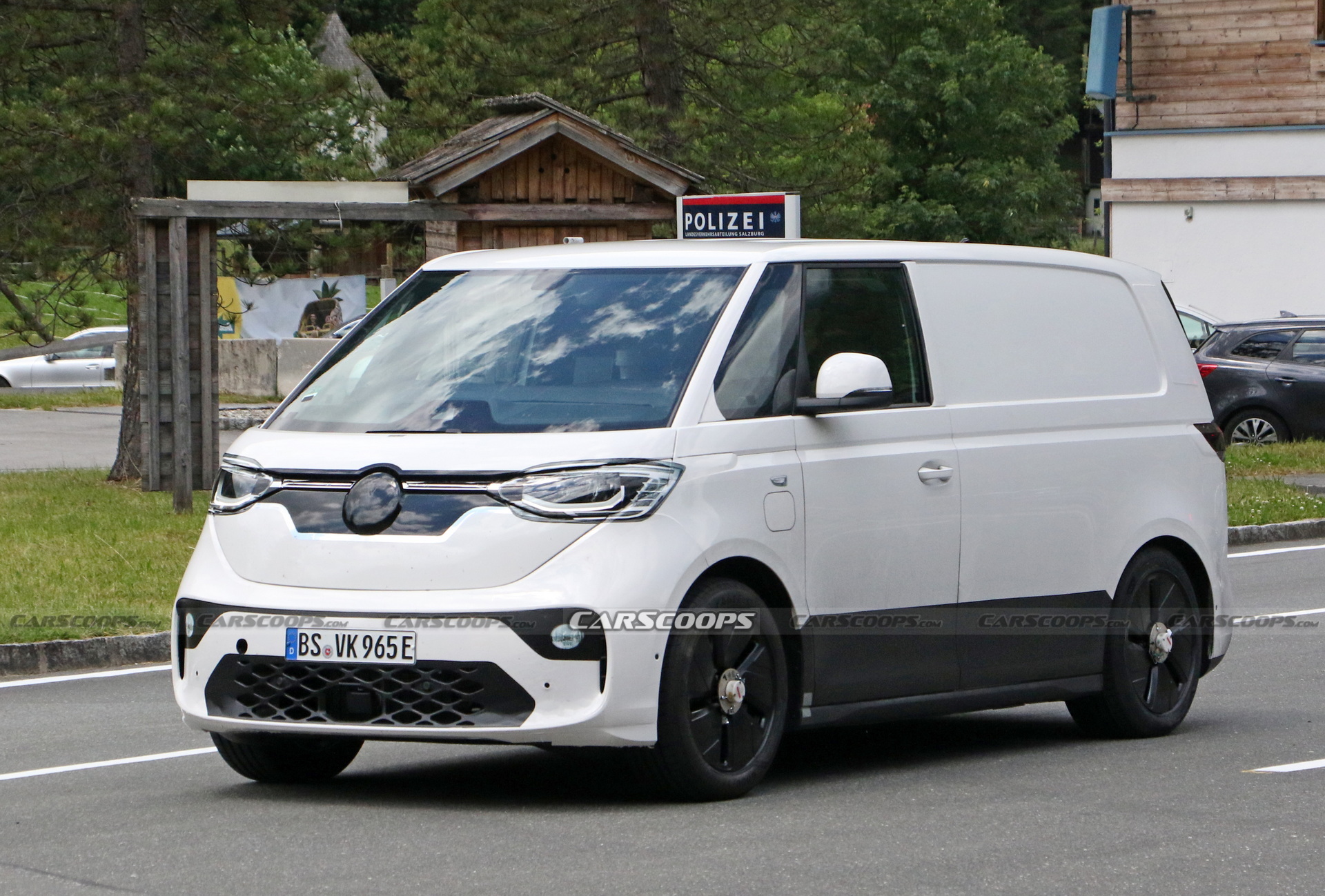
Seen here in prototype form, the production VW ID.Buzz will be offered in both passenger minivan and commercial van variants
Sales across Europe will kick off in 2022, and in North America the following year – very likely as a 2024MY. Multiple configurations with flexible seating options will be offered, plus a commercial variant called the ID. Buzz Cargo. Pricing is tipped to start around the USD $40,000 mark for the passenger version.
Does the ID. Buzz stay faithful enough to the original concept? Share your thoughts in the comments below.








